#Treat Bruxism
Note
Maybe you’re clenching your teeth at night? It’s known as bruxism in some places. Basically when you’re sleeping you may be biting really hard without knowing and it can sometimes cause teeth pain. You may not even realize you’re doing it at first because when you wake up you stop doing it. It can also happen because of anxiety or stress (just saying bc this happens to me). -❄️
ohh interesting. i know i clench my jaw a lot when im awake bc of stress nd anxiety. so this is def worth looking into, im gnna read more abt it nd keep it in mind thank u! ugh there rlly are sooo many fun things the body do to u 😃 im sorry you're dealing with this tho, i hope it's not too too bad nd that theres smth u can do to alleviate/treat it!!!
10 notes
·
View notes
Text
That entire studio fallout situation brought back several of my stress reactions and I really don't want them to stay.
Bruxism, migraines, stomach pain, tmj from the bruxism. Dude...yeah...
I wanted to leave this at "good luck, goodbye" but..more stuff is coming out. and it's all ugly. And I don't want to be quiet anymore.
I'm hurt, I'm angry with how my friend was treated, I'm ashamed that I didn't do anything sooner. And now they're trying to bully other people into following their orders. Dude...I was healing from this. We all were. Then you harassed me and guilt tripped me. I...man.
15 notes
·
View notes
Photo
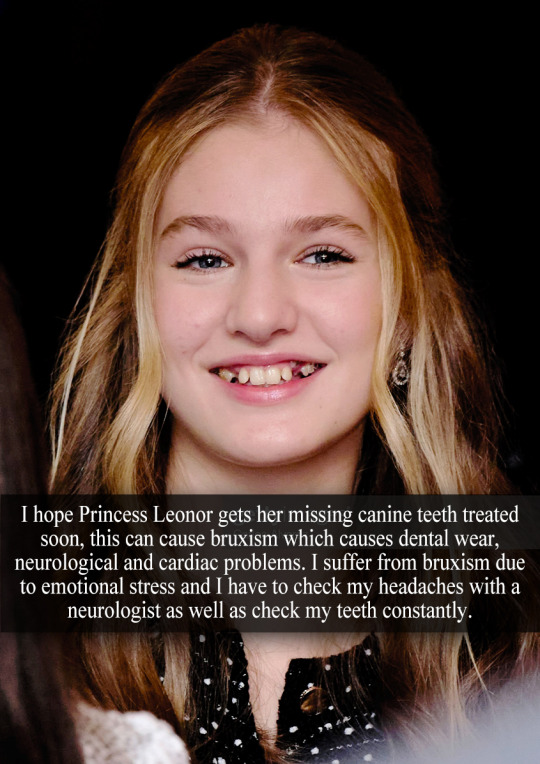
“I hope Princess Leonor gets her missing canine teeth treated soon, this can cause bruxism which causes dental wear, neurological and cardiac problems. I suffer from bruxism due to emotional stress and I have to check my headaches with a neurologist as well as check my teeth constantly.” - Submitted by Anonymous
28 notes
·
View notes
Text
Day seven without effexor!!
Slept through the whole fucking night! Actually slept in until 10 am!!! I haven't done that in literal years. I haven't set an alarm clock in 2022 because inevitably I started waking up for the day around 2-3 am.
I only barfed once yesterday and it was RIGHT after I woke up! Same thing happened today so here's hoping I have another good stomach day like yesterday was.
So I dunno. Things aren't perfect--I had more brain & spine zaps every hour than I can count, and my vertigo is mad whack--but the shit that was making me most insane about effexor is backing off... the anxiety, insomnia, feeling 10-15F degrees hotter than everyone else, fear of food and hot weather bc of inevitable nausea/vomiting, painful bruxism... ALL of it has improved dramatically over the course of just one week 💖🎉
I honestly didn't even realize how much of my temperature intolerance was caused by the effexor. I chalked it up to living in Florida and being a fat fuck. It's so amazing to go out for a meal in a restaurant and not have sweat streaming down my back by the time the drinks come.
Just like... man how much shit have I been dealing with that I attributed to being too heavy or too lazy or not eating right or drinking too much or simply just entering middle age? Detoxing off of Effexor is definitely not, like, comfortable... but I've been so physically miserable all year that it's just sort of a period of more inconvenience than usual. As SO many of my physical issues are easing up dramatically, it's hard for me to even say that the withdrawal has been hard or bad. The withdrawal has been a daily revelation that a lot of this shit was never caused by my own failure to take care of myself, and that is... whoo boy. I mean the emotional deregulation is real, but it makes me want to cry with relief!
I'm not mad at Effexor or the doc who asked if I wanted to try it. I REALLY needed it for a while in order to get my mental health at the time balanced out, and there was not another med that helped in the same way. It helped me conquer my social anxiety, even, which is amazing, bc it showed me how much of that came from a real chemical imbalance rather than a self esteem or agoraphobia thing. But it never even occurred to me that I might not have major depression for the rest of my life! Of course you don't need a heavy duty drug to treat a problem that has, at least for the time being, been corrected.
19 notes
·
View notes
Photo

Ambiance Dental offers innovative dental splint treatment options for those suffering from teeth grinding and TMJ disorders. Splints are designed as a solution to protect teeth, jaw and muscles from overuse, wear and damage caused by grinding and clenching. The treatment treats headaches, neck pain, bruxism and TMJ disorders.
#dental splints#dental splint treatment#dentist#dental health#TMJ disorders#tmj#tmj disorder#TMJ Dentist
10 notes
·
View notes
Text
The only reason I’m not cutting right now is because I’m too tired. Scary
I felt utter hopelessness right then. Impending Hopelessness on the bathroom floor. It was a halfhearted break down. I need a full fledged breakdown to identify what the fuck is wrong with me.
Stared at self in bathroom mirror and said: ‘What’s wrong? I don’t know what the matter is, but we will find out.’ A question I’ve known but not asked self in the last few days. Then I stared at myself for so long that I became the ugliest person in the world. Hated self for being materialistic. Tried to distract by brushing teeth. Opened mouth then noticed I’ve been grinding my teeth again whilst asleep. Hated self for anxiety induced bruxism. And that’s when I sunk to the cool tiles and realised I am nothing. Not attractive, not good at my simple job, not prepared for the future, completely prospect-less and therefore hopeless.
I wanted a full fledged breakdown but instead I sat there shocked on floor, only a few wet tears to show sign of emotion. Just pathetic.
I don’t know how I feel. And that really annoys me because I can’t get better without productive introspection. Otherwise I’m simply identifying vague negative feelings, not knowing the cause and how to treat it. And all that is is rumination!!
2 notes
·
View notes
Text
Can Your Dentist Help You to Stop Snoring?
Can Your Dentist Help You to Stop Snoring?
https://www.youtube.com/watch?v=a73Y055spN0
Do you or a family member snore?
Do you grind your teeth at night?
These are a symptoms of an airway that isn't working the way it should, and it's actually connected to your jaw.
Although the correlation is unclear, many people with sleep apnea also have sleep-related bruxism.
Experts suggest mouth muscles trying to reopen the airway narrowed by sleep apnea may lead to teeth grinding.
Research has not concluded whether or not sleep apnea and bruxism are interconnected or occur independently.
Oral appliances to treat sleep apnea may help manage teeth grinding - however understanding the underlying causes of breathing issues is critical
To discuss practical approaches to sleep apnea today my guest is Dr. Dar Radfar, founder of the RadHealth Clinic.
Dr. Radfar will discuss his practical approaches to snoring and sleep apnea and how he implements these aspects into his dental practice.
Join live to ask a Q!
via Dr Steven Lin https://www.youtube.com/channel/UC3usB3s0qqOo4wImv3fgf5A
April 18, 2024 at 11:13AM
#dentalhealth#drstevenlin#thedentaldiet#nutrition#oralwellness#preventivedentistry#hormonehealth#weightlossjourney#diabetesmanagement
0 notes
Text
Teeth Problem Solution

Understanding the Root of the Issue
Before delving into the solutions offered by HiTechDental, it’s crucial to comprehend the diverse array of Teeth Problem Solution individuals face. These encompass a spectrum of issues ranging from common occurrences like tooth decay and gum disease to more intricate matters such as malocclusion and bruxism.
Addressing Tooth Decay and Cavities
One of the primary concerns in dental care is combating tooth decay and cavities. Traditional approaches often involve fillings or, in severe cases, root canal procedures. However, HiTechDental introduces a breakthrough solution — minimally invasive treatments utilizing cutting-edge technology.
With state-of-the-art equipment and techniques, HiTechDental offers composite fillings that blend seamlessly with natural teeth, preserving aesthetics while effectively addressing decay. Moreover, their focus on minimally invasive procedures ensures reduced discomfort and faster recovery times for patients.
Revolutionizing Orthodontic Care
Malocclusion, characterized by misaligned teeth or improper bite, is a prevalent issue affecting individuals of all ages. Traditional orthodontic treatments typically involve conspicuous metal braces, posing aesthetic concerns and discomfort for many.
Enter HiTechDental with its groundbreaking orthodontic solutions. Utilizing advanced orthodontic techniques such as invisible aligners and lingual braces, they provide discreet and effective options for correcting malocclusion. By harnessing the power of digital technology, HiTechDental offers personalized treatment plans tailored to each patient’s unique dental anatomy, ensuring optimal results with minimal inconvenience.
Combatting Periodontal Problems
Gum disease, a leading cause of tooth loss and oral health complications, requires comprehensive treatment to prevent its progression. HiTechDental adopts a multifaceted approach to address periodontal problems, combining professional cleanings, targeted therapies, and patient education to promote gum health.
Through advanced periodontal treatments such as laser therapy and guided tissue regeneration, HiTechDental tackles gum disease with precision and efficacy. By integrating innovative techniques with compassionate care, they empower patients to regain control of their oral health and preserve their natural teeth for years to come.
Embracing Preventive Dentistry
Beyond treating existing Teeth Problem Solution, HiTechDental emphasizes the importance of preventive dentistry in maintaining optimal oral health. Through routine check-ups, dental cleanings, and patient education, they empower individuals to proactively safeguard their smiles against future issues.
Additionally, HiTechDental offers tailored preventive care plans suited to each patient’s unique needs, ensuring comprehensive protection against common dental ailments. By fostering a culture of prevention, they aim to minimize the occurrence of teeth problems and promote long-term dental wellness within the community.
In Conclusion
HiTechDental stands at the forefront of dental innovation, offering unparalleled solutions to address a myriad of Teeth Problem Solution. From pioneering treatments for tooth decay and malocclusion to advanced therapies for gum disease, they redefine the standard of care in the field of dentistry.
#HiTechDentalInnovates#SmileSolutions#AdvancedDentalCare#OralHealthRevolution#TeethTech#InnovativeOrthodontics#GumHealthMatters#PreventiveDentistry#HiTechSmiles#DentalInnovation
0 notes
Text
Relief at Last: How a TMJ Treatment Dentist Can Ease Your Pain
Living with temporomandibular joint (TMJ) disorder can be debilitating, affecting not only your oral health but also your overall well-being. TMJ disorder can manifest in various symptoms, including jaw pain, headaches, clicking or popping noises, and difficulty chewing. If you're experiencing these symptoms, relief may be closer than you think. A TMJ treatment dentist specializes in diagnosing and managing TMJ disorders, offering personalized care to ease your pain and improve your quality of life.
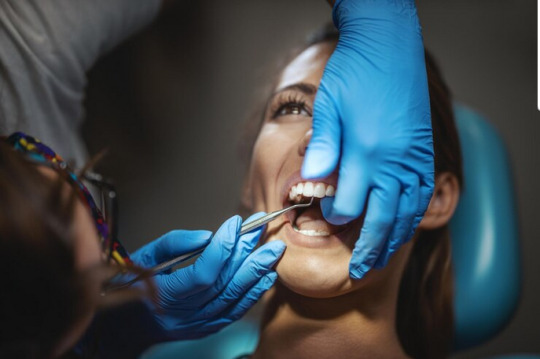
Understanding TMJ Disorder
The temporomandibular joint (TMJ) is a hinge joint that connects your jaw to your skull, allowing for smooth movement when you speak, chew, and yawn. TMJ disorder refers to a group of conditions that affect the TMJ and surrounding muscles, nerves, and tissues. Common causes of TMJ disorder include jaw misalignment, teeth grinding (bruxism), arthritis, injury, or stress.
The Role of a TMJ Treatment Dentist
A TMJ treatment dentist is a specialized dental professional trained in diagnosing and treating TMJ disorders. These professionals have a deep understanding of the complex anatomy and function of the TMJ, allowing them to provide targeted and effective care for TMJ-related pain and dysfunction. Whether through conservative measures or advanced treatments, a TMJ treatment dentist works to alleviate symptoms and improve jaw function.
Signs and Symptoms of TMJ Disorder
Jaw Pain: One of the hallmark symptoms of TMJ disorder is jaw pain or discomfort, often localized around the jaw joint or muscles of the face and neck. This pain may be sharp or dull and can worsen with chewing, talking, or yawning.
Headaches: TMJ disorder can contribute to headaches, including tension headaches and migraines. These headaches may be accompanied by facial pain, especially around the temples or behind the eyes.
Clicking or Popping Noises: Some individuals with TMJ disorder may experience clicking, popping, or grating noises when moving the jaw. These sounds are often caused by the displacement or dysfunction of the TMJ's disc, resulting in abnormal joint movement.
Difficulty Chewing: TMJ disorder can make it challenging to open or close the mouth fully, leading to difficulty chewing or biting. Some individuals may also experience a sense of jaw stiffness or locking, particularly in the morning or after periods of prolonged use.
Treatment Options Offered by a TMJ Treatment Dentist
Conservative Therapies: In many cases, TMJ disorder can be managed through conservative measures aimed at reducing pain and inflammation. These may include lifestyle modifications (e.g., stress reduction techniques, dietary changes), jaw exercises, physical therapy, and the use of oral appliances, such as nightguards or splints, to alleviate teeth grinding and jaw clenching.
Medications: Pain relievers, muscle relaxants, and anti-inflammatory medications may be prescribed by a TMJ treatment dentist to alleviate pain and discomfort associated with TMJ disorder. These medications can help reduce inflammation and muscle tension, providing temporary relief from symptoms.
Dental Treatments: Dental interventions, such as orthodontic treatment or dental restorations, may be recommended to address underlying issues contributing to TMJ disorder, such as bite misalignment or tooth malocclusion. Orthodontic appliances, such as braces or aligners, can help realign the teeth and jaws, relieving strain on the TMJ and improving jaw function.
Advanced Therapies: In cases of severe or persistent TMJ disorder, advanced therapies may be considered. These may include injections of corticosteroids or botulinum toxin (Botox) to reduce inflammation and muscle tension, or surgical procedures to repair or replace damaged joint structures.
Conclusion
Living with TMJ disorder can be challenging, but relief is possible with the help of a skilled TMJ treatment dentist. By understanding the signs and symptoms of TMJ disorder and seeking timely intervention, individuals can find relief from pain and improve their overall quality of life. Whether through conservative therapies, dental treatments, or advanced interventions, a TMJ treatment dentist offers personalized care to address the underlying causes of TMJ disorder and restore optimal jaw function. Don't let TMJ pain hold you back—schedule a consultation with a TMJ treatment dentist today and take the first step towards relief.
0 notes
Text
Massage for TMJ Relief: Easing Jaw Tension and Discomfort
Introduction:
Temporomandibular joint (TMJ) disorder is a common condition that affects millions of people worldwide, causing pain, stiffness, and dysfunction in the jaw joint and surrounding muscles. TMJ disorder can result from a variety of factors, including stress, jaw misalignment, teeth grinding, or trauma to the jaw. While conventional treatments such as medication, oral appliances, and physical therapy are often prescribed for TMJ relief, massage therapy offers a natural and effective approach to alleviating jaw tension and discomfort. In this article, we'll explore the benefits of massage for TMJ relief, discuss common causes and symptoms of TMJ disorder, and provide practical tips for incorporating massage into a comprehensive treatment plan.출장마사지
Understanding TMJ Disorder:
The temporomandibular joint (TMJ) is a complex joint that connects the jawbone to the skull and allows for movement during activities such as chewing, speaking, and yawning. TMJ disorder occurs when there is dysfunction or inflammation in the TMJ, resulting in pain, stiffness, and limited range of motion in the jaw joint.
Common causes of TMJ disorder include:
Bruxism (teeth grinding or clenching)
Stress and tension in the jaw muscles
Jaw misalignment or malocclusion
Trauma or injury to the jaw joint
Arthritis or degenerative joint disease
Symptoms of TMJ disorder may include:
Jaw pain or tenderness
Difficulty chewing or biting
Clicking or popping sounds in the jaw joint
Locking or limited movement of the jaw
Headaches or earaches
Facial pain or swelling
Neck and shoulder tension
While the exact cause of TMJ disorder may vary from person to person, stress and tension in the jaw muscles are common contributing factors. Massage therapy can help relieve tension, improve circulation, and promote relaxation in the jaw muscles, providing relief from TMJ-related symptoms.출장샵
Benefits of Massage for TMJ Relief:
Massage therapy offers several benefits for individuals suffering from TMJ disorder, including:
Relaxation of jaw muscles: Massage techniques such as effleurage, petrissage, and myofascial release can help relax tight and tense muscles in the jaw, reducing pain and stiffness associated with TMJ disorder.
Improved circulation: Massage therapy promotes blood flow to the jaw muscles, delivering oxygen and nutrients to the tissues and removing metabolic waste products, which can help reduce inflammation and promote healing.
Release of trigger points: Trigger points, or areas of hyperirritability in the muscles, can contribute to jaw pain and dysfunction. Massage therapy can help release trigger points and improve muscle function, reducing pain and improving range of motion in the jaw joint.
Stress reduction: Stress and tension are common triggers for TMJ disorder symptoms. Massage therapy activates the body's relaxation response, reducing stress hormones such as cortisol and promoting a sense of calm and wellbeing.
Improved range of motion: Massage techniques such as stretching and mobilization can help improve flexibility and range of motion in the jaw joint, allowing for smoother and more comfortable movement during activities such as chewing and speaking.
Practical Tips for Incorporating Massage into TMJ Relief:
If you're considering incorporating massage therapy into your TMJ relief regimen, here are some practical tips to help you get started:
Choose a qualified massage therapist: Look for a licensed massage therapist who has experience working with TMJ disorder and jaw pain. Ask for recommendations from healthcare providers, friends, or family members, and inquire about the therapist's training and expertise in treating TMJ-related conditions.
Communicate your symptoms and concerns: Before your massage session, communicate any symptoms, concerns, or areas of discomfort related to your TMJ disorder with your massage therapist. Be specific about your symptoms, triggers, and treatment goals to ensure a personalized and effective treatment plan.
Explore different massage techniques: There are several massage techniques that may be beneficial for TMJ relief, including Swedish massage, deep tissue massage, myofascial release, and trigger point therapy. Work with your massage therapist to determine which techniques are most appropriate for your individual needs and preferences.
Practice self-care between sessions: In addition to receiving massage therapy, incorporate self-care practices into your daily routine to support TMJ relief and overall wellbeing. This may include gentle jaw exercises, relaxation techniques, heat or ice therapy, and stress management strategies such as mindfulness meditation or deep breathing exercises.
Follow up with your healthcare provider: While massage therapy can provide relief from TMJ-related symptoms, it's important to follow up with your healthcare provider for ongoing evaluation and management of your condition. Your healthcare provider can monitor your progress, adjust your treatment plan as needed, and provide additional recommendations for TMJ relief.
0 notes
Text
5 Signs You May Need Botox Injections in Gig Harbor
Botox injections have become increasingly popular for addressing various cosmetic concerns, offering individuals in Gig Harbor the opportunity to rejuvenate their appearance. However, knowing when it’s the right time to consider Botox can be challenging. In this article, we’ll explore five common signs that may indicate you could benefit from Botox injections near Gig Harbor.
Persistent Fine Lines and Wrinkles: One of the most common signs that you may need Botox injections is the presence of persistent fine lines and wrinkles, especially around the forehead, eyes (crow’s feet), and mouth. These lines can become more prominent over time due to repeated muscle contractions, such as smiling, frowning, or squinting. Botox services in Gig Harbor can help relax these muscles, smoothing out wrinkles and preventing further deepening of lines.
Dynamic Facial Expression Lines: Dynamic facial expression lines, also known as dynamic wrinkles, are formed as a result of facial movements and expressions. Over time, these lines can become more noticeable and may even make you appear older than you are. Botox injections are highly effective in treating dynamic wrinkles by temporarily paralyzing the underlying muscles, resulting in smoother, more youthful-looking skin.
Excessive Sweating (Hyperhidrosis): Experiencing excessive sweating, particularly in the underarms, palms, or feet, known as hyperhidrosis, can be embarrassing and disruptive to daily life. Botox injections can effectively block the signals that trigger sweat glands, reducing excessive sweating and providing relief for individuals struggling with this condition.
Migraine Headaches: Some individuals in Gig Harbor may experience chronic migraine headaches that significantly impact their quality of life. Botox injections have been approved by the FDA as a preventive treatment for chronic migraines. By targeting specific muscle groups, Botox can help reduce the frequency and severity of migraines, providing relief for sufferers.
Jaw Tension and TMJ Disorders: Jaw tension, teeth grinding (bruxism), and temporomandibular joint (TMJ) disorders can cause discomfort, pain, and even dental issues over time. Botox injections can help relax the muscles responsible for these conditions, alleviating tension and reducing associated symptoms.
Conclusion: If you’re experiencing any of these signs in Gig Harbor, Botox injections may be a suitable solution to address your concerns and improve your overall well-being. Remember to consult with a qualified provider, such as Apollo Health in Gig Harbor, offering Botox injections and affordable services, to determine the best treatment plan for your needs.
0 notes
Text
Treatment for TMD/TMJ in Tracy
WHAT IS TMD/TMJ?
Temporomandibular disorders (TMD) and temporomandibular joint (TMJ) disorders are conditions that affect the jaw, jaw joint, and surrounding muscles. TMD and TMJ disorders can cause a range of symptoms, including pain in the jaw, face, neck, and shoulders, difficulty chewing or biting, and a clicking or popping sound when moving the jaw. These disorders can be caused by a variety of factors, including teeth grinding or clenching (bruxism), jaw injury, and stress. Treatment may vary depending on the underlying cause of the disorder and the severity of the symptoms.
Common Symptoms of TMD/TMJ
Here is a list of common symptoms of temporomandibular disorders (TMD) and temporomandibular joint (TMJ) disorders:
Pain in the jaw, face, neck, and shoulders
Difficulty chewing or biting
A clicking or popping sound when moving the jaw
Limited range of motion in the jaw
Tenderness or swelling in the jaw
Headaches or migraines
Earaches or ringing in the ears
Dizziness or vertigo
Difficulty opening or closing the mouth
Teeth grinding or clenching (bruxism)
Facial swelling
It’s important to note that these symptoms may be caused by a variety of factors, and it’s always a good idea to consult with our chiropractor in about your symptoms.
Chiropractic Treatment for TMD/TMJ in Tracy
Chiropractic care is a form of alternative medicine that focuses on the diagnosis and treatment of neuromuscular disorders, including temporomandibular disorders (TMD) and temporomandibular joint (TMJ) disorders. Chiropractors use a variety of techniques, including spinal manipulation and adjustments, to help alleviate pain and improve function in the body.
One of the main ways that chiropractic care can help treat TMD and TMJ disorders is by addressing any misalignments or imbalances in the jaw, neck, and spine. These imbalances can put added strain on the jaw joint and surrounding muscles, leading to pain and discomfort. By correcting these imbalances, chiropractors can help relieve pressure on the jaw and reduce TMD and TMJ symptoms.
Another way that chiropractic care can help treat TMD and TMJ disorders is by reducing muscle tension and improving range of motion in the jaw. Chiropractors may use techniques such as massage, stretches, and exercises to relax and stretch the muscles around the jaw, helping to alleviate pain and improve function.
It’s important to note that TMD and TMJ disorders can be complex conditions, and treatment may vary depending on the underlying cause of the disorder and the severity of the symptoms.
Stretches & Exercises to Help with TMD/TMJ
Here are some stretches and exercises that may help alleviate pain and improve function in individuals with temporomandibular disorders (TMD) and temporomandibular joint (TMJ) disorders:
Jaw stretches: Gently open your mouth as wide as you can and hold for a few seconds. Repeat several times. You can also try placing a finger on your chin and gently pushing down while resisting with your jaw muscles.
Neck stretches: Tilt your head to one side, bringing your ear towards your shoulder. Hold for a few seconds, then slowly return to the starting position. Repeat on the other side. You can also try tilting your head back and looking towards the ceiling, or tilting your head to one side and looking towards your armpit.
Lip stretch: Puckering your lips as if you’re kissing the air can help stretch the muscles in your jaw and lips. Hold for a few seconds, then relax. Repeat several times.
Tongue stretch: Stick out your tongue as far as you can and hold for a few seconds. Repeat several times.
Jaw relaxation: Place a finger on your cheekbone near your ear and gently massage in a circular motion. You can also try placing a warm washcloth over your cheekbones and temples and massaging in a circular motion.
Jaw strengthening: Place a small object between your teeth and gently bite down, holding for a few seconds. You can also try gently biting down on a washcloth or piece of gauze to help strengthen the muscles in your jaw.
Chiropractor for Jaw Pain in Tracy
If you’re experiencing jaw pain, chiropractic care may be able to help. It’s very likely you could be experiencing TMD/TMJ. Our team here at Optmz State Spine, Movement & Wellness Center would love to evaluate you and see if we can help. You don’t have to live in pain!
Book your appointment now and start your path to optimal health today!
0 notes
Link
10 notes
·
View notes
Text
Common Teeth Problems
Introduction
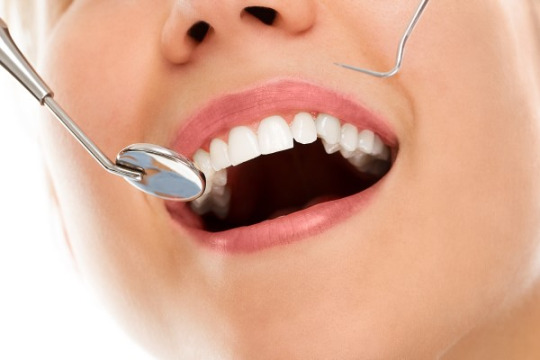
Maintaining good oral health is crucial for overall well-being. However, many people encounter various teeth problems that can impact their daily life and oral hygiene. In this article, we'll explore some common teeth problems and provide tips on how to address them effectively.
Tooth Decay

Tooth decay, also known as cavities or dental caries, occurs when bacteria in the mouth produce acids that erode tooth enamel. This can lead to pain, sensitivity, and even tooth loss if left untreated.
Prevention and Treatment:
Brush your teeth at least twice a day with fluoride toothpaste.
Floss daily to remove plaque and food particles between teeth.
Limit sugary and acidic foods and drinks.
Visit your dentist regularly for check-ups and professional cleanings.
Treat cavities promptly with fillings or other restorative procedures.
YOU CAN ALSO TRY THIS PRODUCT
PowerBite | Supplements - Health
Gum Disease
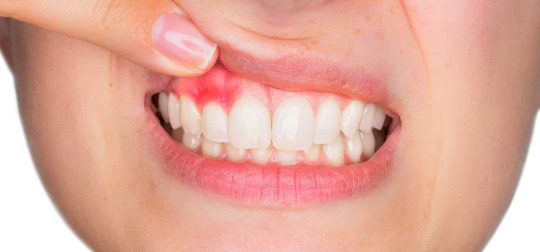
Gum disease, or periodontal disease, is an infection of the gums that can cause gum inflammation, bleeding, bad breath, and eventually, tooth loss if not managed.
Prevention and Treatment:
Practice good oral hygiene by brushing and flossing regularly.
Use an antiseptic mouthwash to reduce bacteria in the mouth.
Quit smoking, as smoking increases the risk of gum disease.
Visit your dentist for deep cleanings and periodontal treatments if needed.
Tooth Sensitivity

Tooth sensitivity is characterized by pain or discomfort when consuming hot, cold, sweet, or acidic foods and beverages. It can be caused by enamel erosion, gum recession, or tooth decay.
Prevention and Treatment:
Use a toothpaste specially formulated for sensitive teeth.
Avoid extreme temperature foods and drinks.
Maintain good oral hygiene to prevent further enamel erosion.
Consult your dentist for desensitizing treatments or protective coatings.
Teeth Grinding (Bruxism)
Teeth grinding, or bruxism, is a condition where individuals clench or grind their teeth, often unconsciously. This can lead to tooth wear, jaw pain, headaches, and muscle tension.
Prevention and Treatment:
Wear a nightguard or splint to protect teeth from grinding during sleep.
Manage stress through relaxation techniques or counseling.
Avoid caffeine and alcohol, as they can exacerbate teeth grinding.
Seek dental evaluation for customized treatment options.
YOU CAN ALSO TRY THIS PRODUCT
PowerBite | Supplements - Health
Gum Disease (Periodontal Disease)
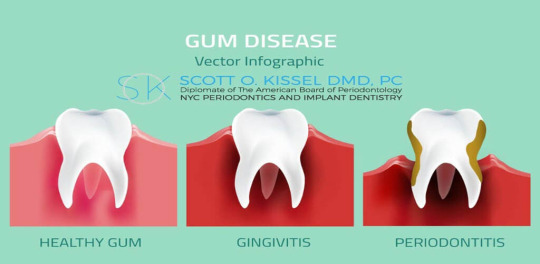
Gum disease is an infection of the gums and surrounding tissues caused by plaque buildup and bacterial growth. It can range from mild gingivitis to severe periodontitis if left untreated.
Prevention and Treatment:
Effective Oral Hygiene: Brush and floss daily to remove plaque and prevent gum disease.
Regular Dental Visits: Schedule regular check-ups and cleanings with your dentist to monitor gum health.
Scaling and Root Planing: Deep cleaning procedures can remove plaque and tartar buildup below the gumline.
Antibacterial Mouthwash: Use an antibacterial mouthwash to reduce bacteria and prevent gum inflammation.
Quit Smoking: Smoking increases the risk of gum disease, so quitting can improve gum health.
YOU CAN ALSO TRY THIS PRODUCT
PowerBite | Supplements - Health
Conclusion
Understanding common teeth problems and taking proactive measures to address them is essential for maintaining optimal oral health. By practicing good oral hygiene, visiting your dentist regularly, and addressing dental issues promptly, you can preserve your smile and prevent serious dental complications.
DISCLAIMER.
THERE are an affiliate link of a best product in this article which may make same profit for me
0 notes
Text
Guarding Your Oral Health: The Benefits of Custom Mouthguards
In the realm of oral health, prevention is paramount. While regular brushing, flossing, and dental check-ups are essential, there's one often overlooked aspect that can significantly impact your dental well-being. Specifically, custom mouthguards Melbourne offer a level of protection and comfort that can't be matched by their store-bought counterparts.
Whether you're an athlete engaging in high-impact sports or someone who grinds their teeth at night, investing in a custom dental guard could be one of the best decisions you can make for your oral health. Let's delve into the benefits of these personalised oral appliances:
Superior Protection
Custom dental guard are crafted specifically for your mouth by dental professionals. This tailored fit ensures maximum coverage and protection for your teeth, gums, and jaw.
Unlike generic dental guard, which may not fit properly and leave areas vulnerable to injury, custom denture Melbourne provide a snug and secure fit, minimising the risk of dental trauma during physical activity or while sleeping.
Comfort and Wearability
One common complaint with store-bought dental guard is their bulkiness and discomfort. Many athletes find it challenging to breathe or speak clearly while wearing them, which can hinder performance.
Custom dental guards, on the other hand, are designed to fit your mouth precisely, offering optimal comfort and wearability. You'll hardly notice you're wearing one, allowing you to focus on your game or get a restful night's sleep without distractions.

Tailored to Your Needs
Whether you need protection during sports or require a solution for teeth grinding (bruxism), custom mouthguards Melbourne can be tailored to your specific needs. Dental professionals can adjust the thickness, material, and design of the dental guard based on factors such as the intensity of physical activity or the severity of teeth grinding.
This customisation ensures that you get the most effective protection and treatment for your individual situation.
Long-Term Cost Savings
While custom dental guard may have a higher upfront cost compared to their over-the-counter counterparts, they often prove to be more cost-effective in the long run. Generic denture Melbourne may need frequent replacements due to wear and tear or discomfort, leading to ongoing expenses.
Custom dental guards, however, are durable and designed to last, reducing the need for frequent replacements and potential dental repairs resulting from inadequate protection.
Prevention of Dental Injuries
Dental injuries caused by sports-related accidents or teeth grinding can be painful, disruptive, and costly to treat. Custom dental guards act as a preventive measure, reducing the risk of fractures, dislocations, and other dental traumas.
By investing in a custom mouthguard, you're not only safeguarding your oral health but also minimising the likelihood of future dental emergencies.
Wrapping Up
Your oral health is too important to leave to chance. Whether you're an athlete or someone struggling with teeth grinding, custom mouthguards Melbourne offers a personalised solution that prioritises protection, comfort, and long-term oral well-being.
By working with a dental professional to obtain a custom mouthguard, you're making a proactive investment in your dental health that can pay dividends for years to come. Don't wait until an injury occurs – take proactive steps to guard your oral health today.
0 notes